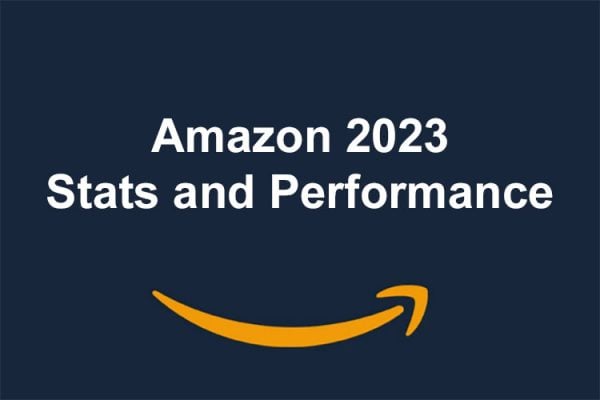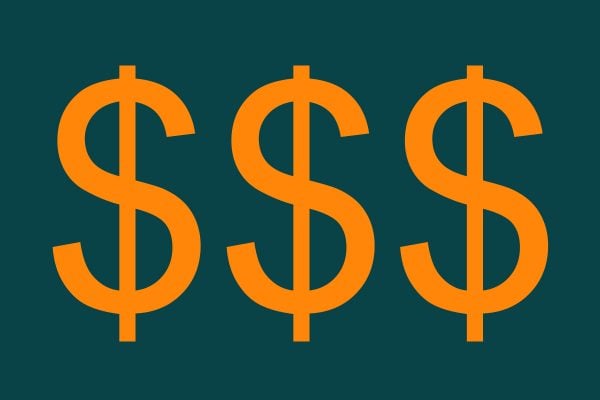There’s been an interesting price war taking place on Amazon.com which resulted in a book on genetics being offered for sale at $23,698,655.93 (plus $3.99 shipping).
Spotted by Michael Eisen, a biologist at UC Berkeley, two sellers appear to have been using automatic re-pricing which resulted in the price being increased on a daily basis. One seller priced the book at 1.270589 times the price of the other, who promptly repriced the book at a competitive 0.9983 times the price of the first seller. On a daily basis the price crept up in ever increasing amounts – as soon as one seller’s automatic repricing took place the other seller’s algorithm made a similar price adjustment.
Normally with repricing sellers aim to have the lowest priced goods on a marketplace to attract buyers, but in this case one seller didn’t want a race for the bottom, they wanted to maintain a reasonable price 27% higher than the competition. However as soon as the competition slightly uncut them the traditional race for the bottom turned into a race for the most expensive book in history.
Neither book sold of course, and they’ve since been repriced to a more realistic $106.23 (and the other at a predictable $106.23 times 1.27059 = $134.97!), but it shows how dangerous automatic repricing can be. Naturally sellers normally set a minimum selling price to avoid repricing into a loss making position, but it obviously didn’t occur to these sellers to set a maximum.
I have to admire the seller who repriced to be more expensive than the competition, the race for the bottom with the lowest price is all too common and the lowest price often isn’t the one many buyers will select. There is a thing as too cheap, but in this case there’s also a book that was just too expensive.
Do you use automatic repricing? What rules do you have in place to ensure your prices remain reasonable?










5 Responses
I have reviewed automatic repricing and although I find it frustrating to list a product at the lowest price only to find minutes later I have been undercut by several other sellers I wont be using it for several reasons.
Buyers do not always buy the cheapest product even if there is no difference in the condition i.e. new, and this applies to both eBay and Amazon. I don’t consider a seller shipping from the USA, Europe or other International location a serious competitor that I should try and match on price. I am going to ship the same or next working day and non UK sellers cannot compete with delivery times.
Sellers with poor feedback are likewise not considered a serious competitor.
If I have multiple quantities of a particular product and a competitor has just one of the same product but at a price below mine I am happy to wait until they have sold out and my product moves up the list.
Perhaps more importantly, and this is far more apparent on eBay than Amazon is customer loyalty. I have approx 7 – 10 % repeat business from customers who feel safe in dealing with me, and the trust factor outweighs cost.
I agree totally with Glenn – if you price things cheaply, they will sell cheaply (strangely enough).
I refuse to be drawn into 99p start prices just because non-business sellers want to save themselves 10p on eBay.
As I sell collectables, there’s not really any set price, only guidance from a catalogue (that’s not very accurate anyway). I price according to what I think it’s worth and if it hasn’t sold after a few weeks, then I will drop the starting price or switch to buy-it-now for items that only a few people worldwide might buy!
This works really well and I consistently sell around 70% of what I list in any one week…
The absolute key to this is REPUTATION, people are always prepared to pay more if they think they’re getting a better product/service (which they are – honest!)
I provide automatic repricing and this likely happens more often than you think. Last year one of my subscribers had something on eBay for just under $100M ($99,999,999.00 is the max allowed) before I contacted him telling him he probably made a mistake. I guess I should have anonymously contacted some tech blog to point it out because it would have been free advertising.
Currently about 2% of all our managed listings are set to price above the competition rather than below or equal.
I dearly hope nothing like this ever hits eBay (any kind of automatic repricing – books on genetics are cool)